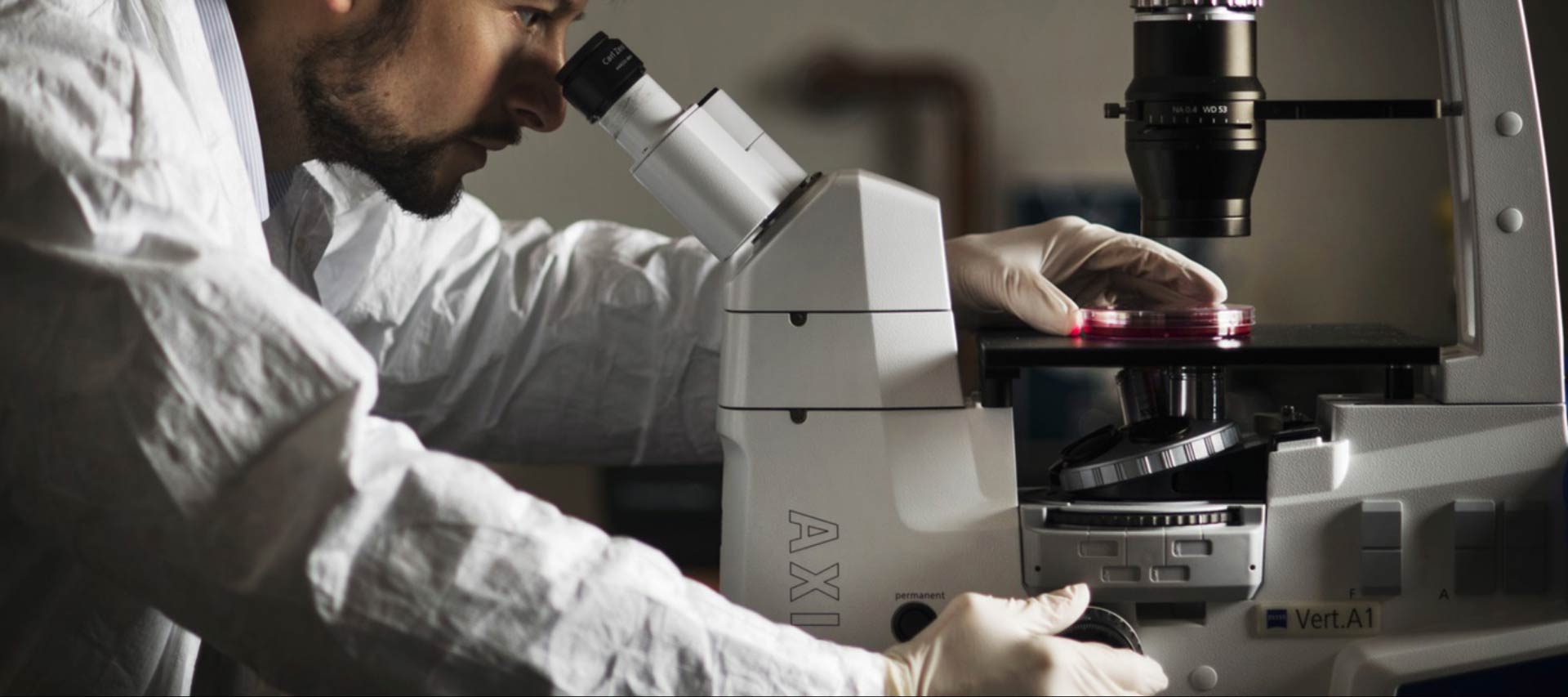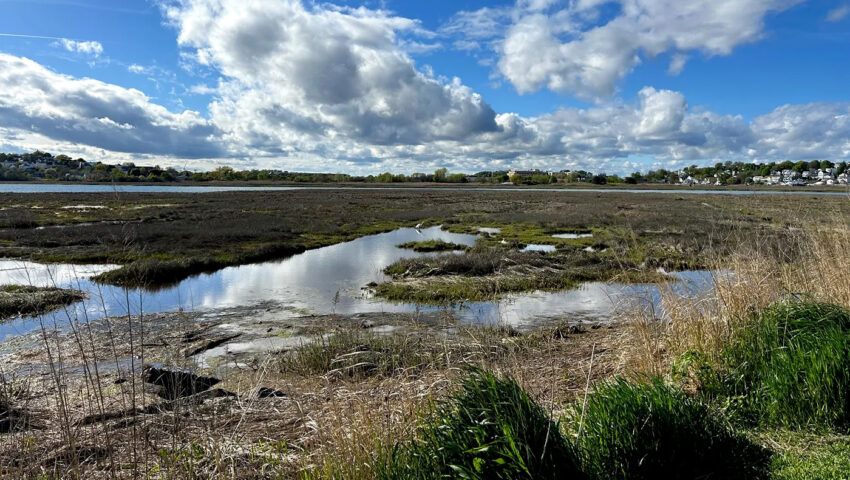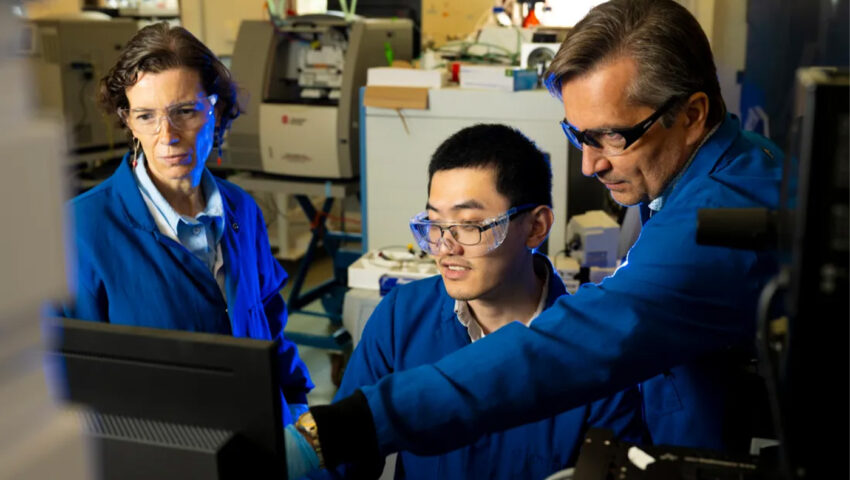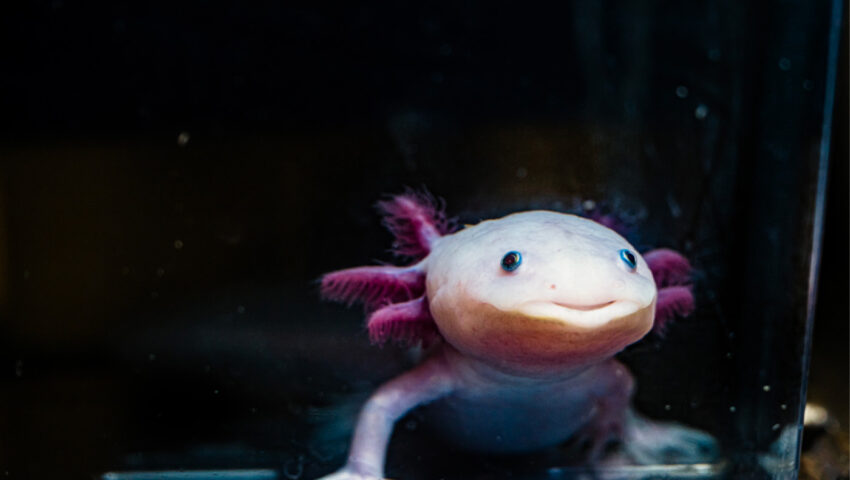
People
We are teachers, leaders, researchers, advisors, business professionals and students. Welcome to Northeastern’s College of Science
Rebecca Carrier
News
Protective salt marshes along coasts are in danger across the globe but it’s not too late to act, Northeastern researchers say
Salt marshes are among coastal habitats endangered by both rising sea levels and urban development.
Preserving and restoring salt marshes is essential not only for wildlife protection and natural flood mitigation, but also for the numerous ecosystem services — such as carbon storage, bird watching and fishing — they provide to urban dwellers.
This is the case a group of Northeastern University scientists is making in a recent study that predicts how New England salt marshes might look by 2100 due to rising sea levels, using the example of Belle Isle Marsh Reservation, Boston’s last remaining salt marsh.
The scientists suggest potential actionable solutions that can help preserve the marsh.
“I don’t think it’s too late to act,” says Jahson Alemu I, who led the study and worked closely with municipalities and communities that border the marsh as a postdoctoral fellow of the Coastal Sustainability Institute, a joint program between the Marine Science Center at Northeastern and the Nature Conservancy, a global environmental nonprofit.
Read more from Northeastern Global News
Photo by Alena Kuzub/Northeastern University
The interaction between humans and artificial intelligence demands a new field of study, Northeastern researchers say
To be an internet user in 2024 is like being a hamster running on a wheel. The modern web is largely composed of consumer services that use artificial intelligence-based algorithms to hook people to stay logged on — for better and for worse.
“You as a user make choices,” says Tina Eliassi-Rad, a computer sciences professor at Northeastern University and a core faculty member of the Northeastern Network Science Institute and the Institute for Experiential AI.
“You watch certain things. You buy certain things. You’re producing training data for these AI algorithms, specifically recommendation systems — think Amazon, think Netflix, think Match.com”
“These AI algorithms produce suggestions to you, those suggestions supposedly influence your choices,” she adds. “Through that, you’re producing more training data for the algorithm, and round and round we go.”
In essence, the web is made up of a series of human and AI feedback loops correlated with user behavior, Eliassi-Rad explains.
Eliassi-Rad is one of several Northeastern researchers who have proposed a new area of study they are calling “Human AI Coevolution” to better understand and analyze these feedback loops. Other researchers on the project include Northeastern professors Ricardo Baeza-Yates, Albert-László Barabási and Alessandro Vespignani.
Read more from Northeastern Global News
Photos by Ruby Wallau, Matthew Modoono/Northeastern University and courtesy photo
Northeastern researchers find a faster and more sensitive way to study proteins, which could lead to advances in disease treatment
Protein complexes are important for the majority of vital processes in the cell and human body, such as producing energy, copying DNA and regulating the immune system.
Composed of groups of connected protein chains called subunits, the complexes are also good targets for medicines that treat diseases.
But studying them in their native, natural physiological state, while preserving their 3-D protein folds, has proved challenging.
Traditional mass spectrometry methods and structural biology techniques may require breaking protein chains into pieces or turning protein parts into crystals.
These approaches not only disrupt the structure of the assembled protein molecules but involve using substantial amounts of samples and waiting weeks for results.
Now researchers at Northeastern University have developed a novel method of preserving the structure of protein complexes and their interactions under near-native conditions while analyzing them in 30 minutes or less, using small sample amounts.
Associate research scientist Anne-Lise Marie and associate professor of chemistry and chemical biology Alexander R. Ivanov say their research, published in the Advanced Science journal, could eventually expedite drug development for pathologies such as Alzheimer’s and Parkinson’s disease.
Read more from Northeastern Global News
Photo by Alyssa Stone/Northeastern University
Why are axolotls suddenly so popular — and going extinct at the same time?
You may have seen axolotls — an amphibian in the salamander family with a permanent smile and pink, feathery gills — in a pet store or as a plushie in a window, but the endearing animal’s popularity seems to be rising just as it has become critically endangered in the wild.
James Monaghan, professor of biology at Northeastern University, specializes in the friendly looking critters, studying their amazing regenerative capabilities. “Axolotls have just exploded in [popularity] the past couple of years,” he says.
Read more from Northeastern Global News
Photo by Alyssa Stone/Northeastern University




